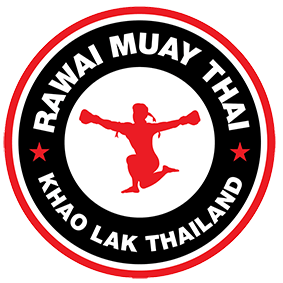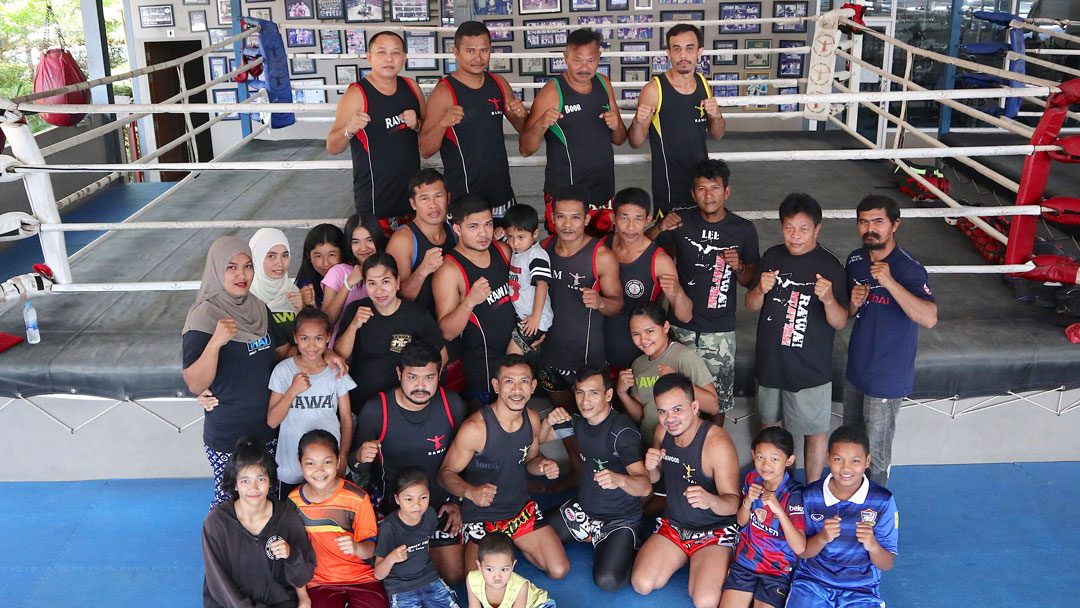Basic Thai Words
Learning a new language can be daunting. But Thai can be trickier than most, in that it is a tonal language. So the way you say a word can be the difference between close or far, both words are pronounced “klai” but with different tones. It’s almost absurd that such a tiny difference in sound can be such a large difference in meaning. To the Western ear both words sound the same.
I have been in Thailand for over 16 years and although I do speak enough to get by, I have not mastered the tones. Thai uses long, short, high and low tones to give the words meaning. Similar sounding words can have different meanings based on the tone they have. For example the Thai word “kao” can mean: rice, nine, knee, to come in, news, etc… The tones are hard to remember so when in doubt jut say the word in a flat, toneless way, and the listener can usually get your meaning from the sentence. It’s how I speak and it works for me.
The best way to learn is practice with the local people. Going to markets where you have to communicate with many people is a fun way to learn basic Thai.
Basic Words
I (man) = pom
I (woman) = chan
Thais don’t really use pronouns much. For example, if you want to say “I am sick” most people would just say “mai sabai”, instead of “chan mai sabai”.
- work = tam ngan
- to want = ao
- to not want = mai ao
- I think = kid wa
- why = tam mai
- I am sick = mai sabai
- good= di
- heart= jai
- happy = di jai (literally good heart)
- I am happy = mi kuam suk; or sabai di
- I am not happy = mai sabai di
- broken = sia (pronounce seeya)
- I am sad = sia jai (literally broken heart)
- I am sorry = koh tot
- I am confused = sap son
- never mind = mai pen rai
- a lot/very = mak
- hurt/pain = jeb
- I am full = im (eem)
- I forget = leum
- where is = yu nai
- over there = ti nun
- here = ti ni
- what= arai
- when = meu arai
- friend = peuang
- good friend = peuang di
- problem = pang ha
- I have a problem = mi pang ha
- afraid = glua
- frightened / scared = klua
- smells bad = min
- good = di
- very good = di mak
- bad = mai di
- weather = akas
- hot weather = akas ron
- cold wind = lom yen
- strong wind = lom reng
- bathroom/toilet = hong nam
- shower = ab nam
More Words
- water = nam
- hard = keng
- ice = nam keng (hard water)
- hot = ron
- hot water = nam ron
- cold = yen
- cold water = nam yen
- waterfall = namtok
- rain = fon
- raining = fon tok
- shower = abnam
- toilet = hong nam
- room= hong
- where is the toilet? = hong nam yu nai?
- maybe/perhaps = bang ti
- play = len
- speak = pud (pood)
- funny = sanuk (sanook)
- I know = pom/chan ru
- I don’t know = pom/ chan mai ru
- everything = took sing
- large = yai
- small = lek
- fast = reu
- slow = cha
- now = ton ni
- today = wan ni
- tonight = keun ni
- this morning = chao ni
- tomorrow = prung ni
- yesterday = meu wan
- hour = mong
- what time is it? = tonni gi mong?
Thai Numbers
- 1 = nung
- 2 = song
- 3 = sam
- 4 = si
- 5 = ha
- 6 = hok
- 7 = chet
- 8 = pet
- 9 = kao
- 10 = sip
- 11 = sip et
- 12 = sip song
- 13 = sip sam
- 14 = sip si
- 15 = sip ha
- 16 = sip hok
- 17 = sip chet
- 18 =sip pet
- 19 = sip kao
- 20 = yee sip
- 21 = yi sip et
- 22 = yi sip song
- 23 = yi sip sam
- 24 = yi sip si
- 25 = yi sip ha
- 26 = yi sip hok
- 27 = yi sip chet
- 28 = yi sip pet
- 29 = yi sip kao
- 30 = sam sip
- 40 = si sip
- 50 = ha sip
- 60 = hok sip
- 70 = chet sip
- 80 = pet sip
- 90 = kao sip
- 100 = neung roi
- 150 = nung roi ha sip
- 500 = ha roi
- 1,000 = nung pan
- 1,500 = nung pan ha roi
- 2,000 = song pan
- 5,000 = ha pan
- 10,000 = nung meun
- 100,000 = nung sen
Thai Verbs
- to look = du
- to see = hen
- again = ik krang
- to tell a lie = pud go hok
- to make poo poo = ki
- lies a lot = pud ki mak (literally “speaks poo a lot”)
- to promise = hai sanya
- sorry = ko tot
- to sleep = non/ lap
- to wake up = teun
- go to sleep = lap ta (literally to close eyes)
- dreams = fan
- good night= lap fan di
- have = mi
- I have = pom/chan mi
- I don’t have = pom/chan mai mi
- you have = khun mi
- you don’t have = khun mai mi
- can not hear = mai dai yin
- I can hear = pom/chan dai yin
- to enter = kao
- heart = jai
- to understand = kao jai (literally to enter the heart)
- don’t understand = mai kao jai
- don’t know =mai ru
- want = ao
- don’t want = mai ao
- to run = wing
- to box = som muay
- to see = du
- to go = pai
- to travel = pai tiao
- go where = pai nai
- go now = pai diaoni
Food Words
To eat = kin kao (literally to eat rice)
To drink = deun
food = ahan
candies= kanom
have you eaten already? = gin leu mai krap/ka?
rice = kao
I am hungry = hew kao
Are you hungry? = Khun hew kao mai?
tasty = aroy
I have eaten already thanks = pom/chan kin leu krap/ka
I am full thank you = Pom/chan im leu krap/ka
Thai Time
- “chao” means morning
- “bai” means afternoon
- “yen” means evening
- “mong” mean hour
- 1 am = ti nung
- 2 am = ti song
- 3 am = ti sam
- 4 am = ti si
- 5 am = ti ha
- 6 am = hok mong chao
- 7 am = chet mong chao
- 8 am = pet mong chao
- 9 am = kao mong chao
- 10 am = sip mong chao
- 11 am = sip et mong
- mid day = tian
- 1 pm = bai nung
- 2 pm = bai song
- 3 pm = bai sam
- 4 pm = si mong yen
- 5 pm = ha mong yen
- 6 pm = hok mong yen
- 7 pm = nung tum (pronounced toom)
- 8 pm = song tum
- 9 pm = sam tum
- 10 pm = si tum
- 11 pm = ha tum
- midnight = tian kheun
Past Tense in Thai
- have = mi
- had = mi leu (mee layoh)
- speak = pud (pood)
- spoke = pud leu
- come= ma
- came= ma leu
- go = pai
- gone = pai leu
Days of the Week
The word for day is “wan”
- Monday = wan chan
- Tuesday = wan ankan
- Wednesday = wan pud
- Thursday = wan pareuhad
- Friday = wan suk
- Saturday = wan sao
- Sunday = wan atit
Months of the Year
The months with 31 days end in “kom”.
The months that have 30 days end in “yon”.
February ends in “pan”.
- January = mokara kom
- February = kompa pan
- March = mina kom
- April = mesa yon
- May = pusapa kom
- June = mituna yon
- July = karakada kom
- August = singha kom
- September = kanya yon
- October = tula kom
- November = pasajika yon
- December = tanwa kom
Body Parts and Short Phrases
- eyes= ta
- lips = pak
- hand = meu
- leg= ka
- elbow= sok
- to love= rak
- face= na
- pretty = na rak (literally lovely face)
- beautiful = sway
- hansome = loh
- breasts = nom
- kiss = jup
- like = chob
- you are very beautiful = khun sway mak
- you are very pretty = khun na rak mak
- what is your name? = khun cheu arai?
- you have a beautiful smile = khun mi yim sway
- happy to meet you = pom mi cuam suk ti dai pop khun
- see you again = leu pop khun
- do you have a boy friend? = khun mi fen leu mai?
- I like you = pom/chan chob khun
- what are you thinking? = khun kid arai?
- I am shy = pom ki ai
- you look good = khun sway di
- you look beautiful = khun sway mak
- I love you = pom/chan rak khun
- go watch a movie = pai du nang
- Come to eat = ma kin kao
Questions and Negatives
To make a question just add “mai” at the end.
To make the negative add mai at the beginning. For example:
- Are you hungry? = khun hew kao mai?
- Are you happy ? = khun di jai mai?
- Do you have a boy friend/girlfriend? = khun mi fen leu mai?
- No thanks = mai ao krap/ka
- I don’t know = mai ru krap/ka
- I don’t like it = mai chob krap/ka
- I don’t understand = mai kao jai
Now that you know some words in Thai why not try a Muay Thai class? Contact Rawai Muay Thai for more information regarding training in Thailand.
Contact Us
If you are having trouble submitting the form, just send your email to: info@rawaimuaythai.com


